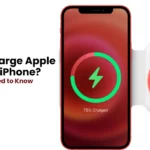In a world where new smartphones are released every year, many users often ask: how long do iPhones last? Whether you’re budgeting your next upgrade or trying to get the most value out of your current device, understanding iPhone lifespan is essential.
Let’s explore how long iPhones usually last, what affects their longevity, and how you can extend their usability before replacement becomes necessary.
Average iPhone Lifespan: How Many Years Does an iPhone Last?
The average iPhone lifespan ranges between 4 to 6 years, depending on how it’s used and maintained. Here’s what real-world usage looks like:
- 2 to 3 Years: Most users begin to experience battery degradation and slight performance drops.
- 4 to 5 Years: With battery replacement, many iPhones remain functional and relevant.
- 6+ Years: Some models still receive updates and run smoothly, but support may be limited.
Software Support
Apple typically provides iOS updates for 5 to 6 years. Security patches may continue even after that. For example:
- The iPhone 6s received updates from 2015 to 2022 (7 years).
- The iPhone 8 still receives updates in 2024, despite launching in 2017.
Once your iPhone can’t support the latest iOS, you’re likely missing out on essential security fixes.
What Affects How Long iPhones Last?
Several factors determine how long your iPhone will last before needing to be replaced:
1. Battery Health
- Apple batteries are designed to retain 80% capacity after 500 full charge cycles (usually 2-3 years).
- Once it drops below 80%, you’ll notice reduced battery life and performance.
Tip: You can extend your battery lifespan using “Optimized Battery Charging” under Settings > Battery.
2. Physical Damage
Cracked screens, broken buttons, or water damage can shorten your iPhone’s usable life.
3. iOS Compatibility
Outdated iOS versions mean no new features, app incompatibility, and potential security risks.
4. Performance Throttling
Older iPhones may experience performance management, especially when battery health is poor. Apple throttles performance to prevent shutdowns.
5. Storage Limitations
Running out of space can slow your device. Models with 64GB or less may feel obsolete faster.
Signs It’s Time to Replace Your iPhone
Still wondering how long do iPhones last before needing to be replaced? Watch for these clear indicators:
- Your iPhone can’t update to the latest iOS
- Battery drains quickly even after charging
- Apps frequently crash or lag
- Storage is always full
- Repairs cost more than a replacement
If you’re facing any of these issues, it may be time to upgrade.
How to Extend Your iPhone’s Lifespan
Want to know how long your iPhone can last with proper care? These tips will help:
1. Replace the Battery
Instead of buying a new iPhone, consider a battery replacement. It’s much cheaper and can make your phone feel new.
2. Use a Protective Case and Screen Protector
Avoid cracks and scratches that lead to expensive repairs.
3. Enable Optimized Charging
Prevents battery wear by limiting overnight charging to 80%.
4. Keep Software Updated
Security patches and performance improvements help maintain speed and safety.
5. Avoid Overloading Storage
Regularly delete unused apps, photos, and videos.
6. Turn Off 5G (When Unavailable)
If your region doesn’t support strong 5G, turn it off to preserve battery life.
How Long Does the iPhone 12 Last?
If you’re wondering how long will iPhone 12 last, you’re in luck. The iPhone 12, released in 2020, will likely receive software updates through 2026-2027 and can remain usable up to 6 years with good care and a battery replacement.
Best Time to Upgrade Your iPhone
Looking for the best time to upgrade iPhone?
- After 3-4 years: You’ll notice the most value and performance improvement.
- When iOS support ends: Upgrade to stay protected and up-to-date.
- When trade-in values are high: Usually around fall, when new iPhones launch.
Tip: Apple and carriers often offer generous trade-in deals in September or October.
FAQs: How Long Do iPhones Last?
Conclusion
So, how long do iPhones last? With the right care, your iPhone can comfortably last 4 to 6 years or more. Battery replacement, regular updates, and protection go a long way in maximizing your phone’s life and value. Whether you choose to upgrade every 2-3 years or stretch it to 6+, understanding these tips ensures you make the most of your iPhone investment.



